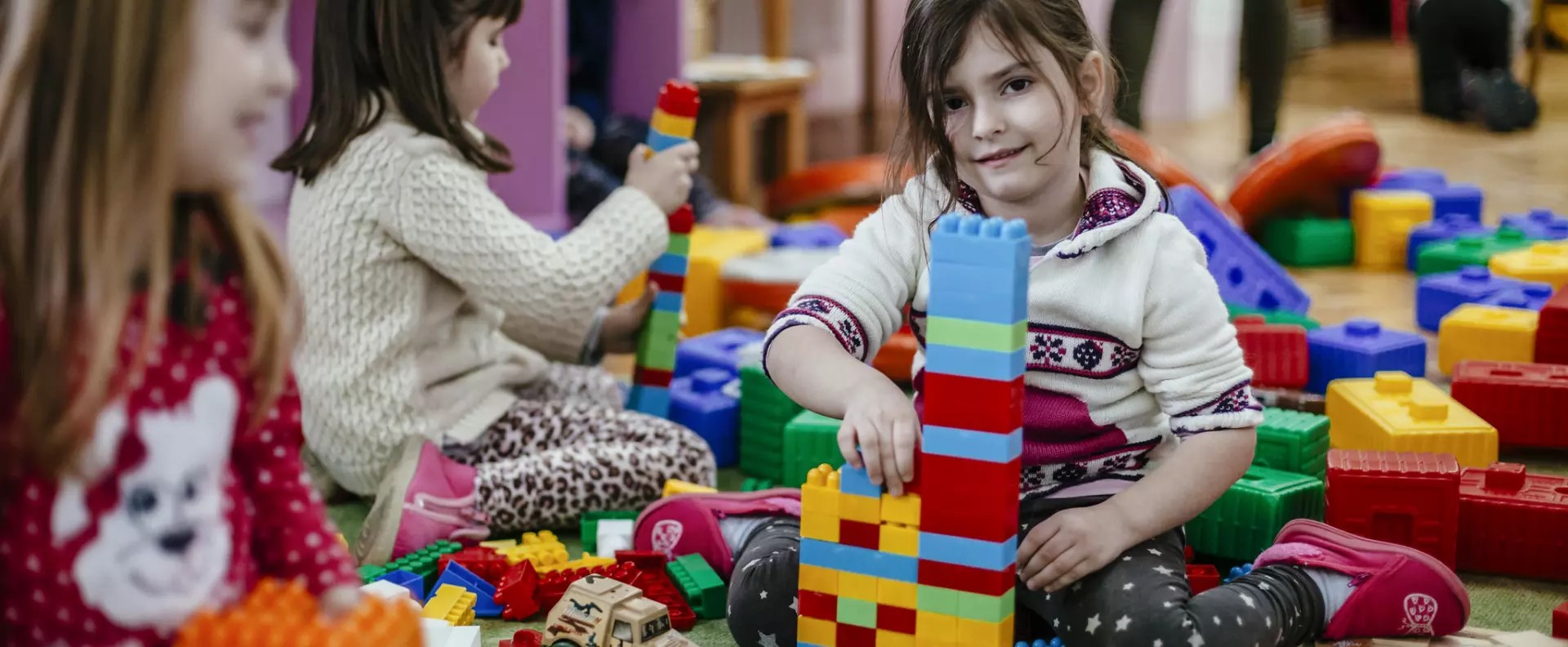العودة

Equitable Financing For Education: a Global and Regional Imperative
اليونسكو
2024 - 10 - 21
At the 2024 Global Education Meeting (GEM) in Fortaleza, Brazil, the spotlight was cast on a critical challenge confronting the world today: equitable financing for education. For the Arab States, this issue resonates deeply as countries across the region grapple with economic inequality, political instability, and the long-term impacts of conflict, all of which hinder access to quality education.

At the 2024 Global Education Meeting (GEM) in Fortaleza, Brazil, the spotlight was cast on a critical challenge confronting the world today: equitable financing for education. For the Arab States, this issue resonates deeply as countries across the region grapple with economic inequality, political instability, and the long-term impacts of conflict, all of which hinder access to quality education.
With education systems under strain, the GEM provided a powerful platform for stakeholders and finance Ministers to explore innovative financing mechanisms designed to close the widening funding gap—particularly for low-income and crisis-affected countries. The discussions emphasized the urgent need for strategic investment to rebuild education systems that are inclusive, resilient, and better equipped to serve the most vulnerable.
In a region where displaced populations, refugees, and girls in rural areas are disproportionately affected, delegates from the Arab States called for a more equitable allocation of resources. Reaching underserved communities and improving infrastructure are essential to ensuring access to quality education for all. Investing in digital learning was also highlighted as a key solution, given its potential to bridge the education divide.
This call to action aligns with the 2022 Transforming Education Summit, which urged both governments and the international community to ramp up efforts toward achieving Sustainable Development Goal 4 —ensuring inclusive and equitable education for all. However, despite these global commitments, the UNESCO Global Education Monitoring Report 2023 revealed a substantial financing gap of USD 97 billion annually for low- and lower-middle-income countries to meet their educational targets by 2030.
Further complicating the picture is the finding from the 2022 Education Finance Watch (EFW), which reported that public spending on education has not kept pace with post-pandemic recovery needs. Across the globe, 250 million children remain out of school, with that number growing in recent years. To reverse this trend, urgent action is needed because every two seconds between now and 2030, a new child must be enrolled in school if we are to meet the SDG 4 commitments.
To tackle this crisis, international collaboration and country-led strategies are essential. The Arab States are particularly well-positioned to lead by example, turning their challenges into opportunities through smart investments and strategic resource allocation. Equitable financing, as highlighted at the GEM, is more than just a financial commitment—it’s a promise to reimagine education and empower marginalized communities, especially girls and children affected by conflict, who have been historically left behind.
The message emerging from the GEM is clear: equitable financing for education is the foundation for building a more inclusive future. As Arab States continue to advocate for collaborative partnerships and sustained investment, the path forward involves ensuring that every dollar invested reaches those who need it most, strengthening education systems at their core.
Regional strategies must align with global commitments to ensure Arab States lead the way in driving meaningful change. Positioning education as a catalyst for sustainable development and regional recovery is crucial. Now, more than ever, investing more—and doing so equitably and efficiently—is essential for securing the future of education and fostering resilience across the Arab world.
Check the Dashboard of Country Commitments and Actions to see how countries are responding, with concrete actions and pledges to invest more in equitable education for all learners.
أحدث المنشورات
القائمة الكاملةاليونسكو
المستقبل على المحك: لماذا الاستثمار في التعليم أمر بالغ الأهمية؟
يسلط هذا التقرير، الذي أعدّته اللجنة التوجيهية الرفيعة المستوى المعنية بالهدف الرابع من أهداف التنمية المستدامة (SDG4) بالتعاون مع الشراكة العالمية من أجل التعليم (GPE) ونُشر في عام 2024، الضوء على الحاجة المُلِحّة لتعزيز الاستثمار في التعليم كوسيلة أساسية لمواجهة التحديات العالمية، بما في ذلك تغيّر المناخ، والتطورات التكنولوجية، والتحوّلات الديموغرافية.
اليونسكو
المدن العربية تتألق في جوائز مدن التعلم لليونسكو لعام 2024
تُحرز المدن العربية تقدمًا كبيرًا في مجال التنمية المستدامة والتعلم مدى الحياة، مع تركيز متزايد على إنشاء بيئات تعليمية شاملة تُسهم في تحقيق الأهداف التنموية المحلية والعالمية. وقد احتفلت جوائز مدن التعلم لعام 2024، التي تُمنح من قِبَل اليونسكو، بهذه الجهود، مبرزةً المدن العربية التي تميزت في بناء مجتمعات تعليمية.
اليونسكو
مؤتمر اليونسكو العالمي الثالث للموارد التعليمية المفتوحة: تعزيز الوصول الشامل إلى المعرفة
انطلق مؤتمر اليونسكو العالمي الثالث للموارد التعليمية المفتوحة (OER) في 19 نوفمبر/تشرين الثاني 2024، في مركز دبي التجاري العالمي في دولة الإمارات العربية المتحدة، ليكون المرة الأولى التي يُستضاف فيها هذا الحدث في العالم العربي. نظّم مؤتمر اليونسكو بالتعاون مع مؤسسة محمد بن راشد آل مكتوم للمعرفة (MBRF)واستقطب أكثر من 500 مشارك ومشاركة من نخبة القادة العالميين، وصنّاع السياسات، وممثلي المؤسسات التعليمية، بما في ذلك وزراء، وأكاديميون، وخبراء من القطاع الخاص. وتركّزت المناقشات على مدار يومين حول تعزيز الاستفادة من الموارد التعليمية المفتوحة والتقنيات الناشئة، بهدف تحقيق وصول عادل وشامل إلى التعليم، وتقليص الفجوة الرقمية على الصعيد العالمي.
اليونسكو
الأمم المتحدة تحتفي في شهر ديسمبر/كانون الأول بحقوق الإنسان، والأشخاص ذوي الإعاقة، واللغة العربية
تُحيي الأمم المتحدة في شهر ديسمبر/كانون الأول ثلاث مناسبات بارزة تُعنى بحقوق الإنسان، وبحقوق الأشخاص ذوي الإعاقة، وباللغة العربيّة، ممّا يجعل هذا الشهر فرصةً عالميّةً للتفكير والعمل. وتقود اليونسكو الجهود لتعزيز التعليم الشامل، وحماية حقوق الإنسان، والاحتفاء بالإرث الثقافيّ واللغويّ للّغة العربيّة، من خلال سلسلة من الفعاليات والمبادرات.